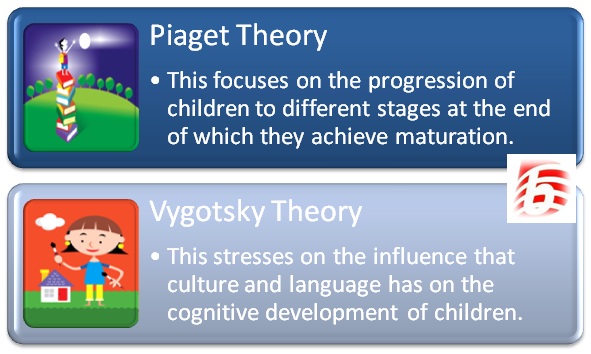Piaget vs Vygotsky
This article explores the theories of Jean Piaget and Lev Vygotsky, emphasizing the similarities and differences between their approaches to cognitive development in children. Piaget is well-known for his theory of cognitive development, which focuses on the progression of children through various stages, ultimately leading to maturation. Vygotsky, on the other hand, presents his Socio-cultural theory of development, emphasizing the influence of culture and language on children’s cognitive development.
What is Piaget Theory?
Jean Piaget’s theory of cognitive development posits that humans experience an interaction between internal development and experiences with the world around them, leading to changes in life. This occurs in two ways: assimilation (adding new information to existing ideas) and accommodation (modifying cognitive schemas to incorporate new information). According to Piaget, children progress through four stages of cognitive development: Sensorimotor, Preoperational, Concrete operational, and Formal operational stages.
What is Vygotsky Theory?
Vygotsky’s Socio-cultural theory of development asserts that a child’s cognitive development is heavily influenced by social interactions and the surrounding culture. As the child interacts with others, the values and norms embedded in a culture are transmitted to the child, affecting cognitive development. Vygotsky also introduced the concept of Scaffolding, which provides clues to a child to help them solve problems without waiting for them to reach a specific cognitive stage of development. Additionally, he considered language as a crucial part of cognitive development and introduced the concept of self-talk as a tool of direction to guide individuals’ thoughts and actions.
Key Takeaways
- Both Piaget and Vygotsky view children as active learners who engage with their environment, allowing changes in their understanding, and both agree that development declines with age.
- While Piaget believes that development precedes learning, Vygotsky argues that social learning comes before development, which is a key difference between the two theories.
- Although Piaget assigns cognitive development to universal stages, Vygotsky focuses on the importance of culture and social interactions as means of shaping development, emphasizing the role of language and cultural attributes in cognitive development.
